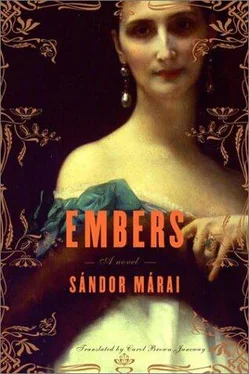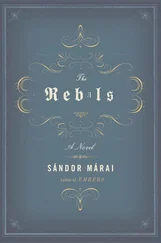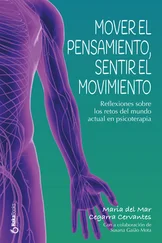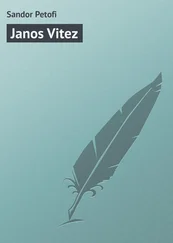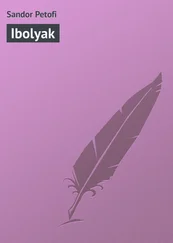“Life becomes almost interesting once one has learned to recognize people’s lies, and one starts to enjoy the comedy as people keep saying things other than they think and really want … That is how we arrive at the truth, and truth is synonymous with old age and death. But it doesn’t hurt anymore. Krisztina deceived me, what a foolish word! And with you of all people, what a pitiful rebellion! Don’t look at me like that: I’m saying it in sympathy. “Later, when I had more experience and understood everything, because time washed up the telltale flotsam of this shipwreck onto my lonely island, I looked back into the past with pity and saw you two rebels, my wife and my friend, wracked with guilt and self-recrimination, wretchedly unhappy in the heat of your defiant passion, rise up against me, in a life-and-death struggle.
“Poor things! I thought, more than once. And I imagined the details of your rendezvous in a house on the edge of a small town, where secret meetings are almost impossible, being penned together as if onboard a ship, while at the same time being painfully on view. A love that knows no moment of peace, because every step, every glance, is watched with concealed distrust by lackeys, servants, and everyone around you. The trembling, the constant game of hide-and-seek with me, those fifteen stolen minutes under the pretext of a ride or a game of tennis or music, those walks in the forest where my gamekeepers keep watch over every kind of game … I imagine the hatred in your hearts when you think of me, when every step you take brings you up against my authority, the authority of a husband and landowner and aristocrat, against my social and financial ascendancy, against the whole crowd of my servants, and against the strongest force of all: the dependence that forces you to acknowledge, beyond love and hate, that without me you can neither live nor die. You unhappy lovers, you could deceive me, but you could not elude me: I may be a different kind of man, and yet the three of us are as inextricably attached as crystals in the laws of physics. And your hand on the gun goes weak one morning when you want to kill me, for you can no longer bear all this torment, all the hiding, all the misery.
… what else could you do? Run off with Krisztina? You would have to resign your commission, Krisztina is also poor, you cannot accept anything from me. No, you cannot run away with her, you cannot live with her, you cannot marry her, to remain her lover is to be exposed to a danger worse than death, because you must constantly anticipate being denounced and unmasked, you must fear having to fight a duel with me, your friend and your brother. You will not hold out for long against such danger. And so, one day when the time is ripe and somehow palpable between us, you raise your gun; and later, whenever I think of that t moment, I feel genuine pity for you. It must be the hardest and most agonizing of tasks to kill someone dear to you,” he says parenthetically.
“You are not strong enough to do it. Or the ideal moment passes and you can no longer do it. There is such a thing as the perfect moment-time brings things of its own accord, we do not merely insert acts and phenomena into time. A single moment, a particular point in time may offer a possibility-and then it’s gone and there’s nothing more you can do. You let the hand holding the gun drop. And next day you leave for the tropics.”
He inspects his fingernails with care. “But we stay here,” he says, still looking at his fingernails, as if this were the important thing, “we, Krisztina and I, stay here. We are here, and everything comes to light in the secret but orderly way that messages travel between people, in waves, even when nobody mentions the secret or betrays it. Everything comes to light because you have gone away and we have stayed here, alive, I because you missed your moment or your moment missed you-it comes to the same thing-and Krisztina because, first of all, there is nothing else she can do, she has to wait, if only to find out whether we have kept silent, you and I, the two men to whom she is bound and who are avoiding her: she waits to find out the meaning of this silence, and to understand. And then she dies. But I remain here, and I know everything, and yet there is one thing I do not know. And now, the time has come for me to have a response. Answer, please.
“Did Krisztina know, that morning on the hunt, that you wanted to kill me?”
The question is framed matter-of-factly, but there is a pitch of tightly wound curiosity in his voice, like that of children begging the grown-ups to tell them the secrets of the stars and other worlds.
The guest does not move. His elbows are on the chair arms, and he’s holding his head in his hands. Finally, he takes a deep breath, bends forward, and rubs a hand over his brow. He is preparing to speak, but the General cuts him off.
“Forgive me,” he says. “You see, now I’ve said it.” He rushes on, as if to excuse himself. “I needed to say it, and now that I’ve done so I feel that I’m not asking the right question and that I’m making things painfully awkward for you, because you want to tell me the truth but I have phrased the question incorrectly. It sounds like an accusation. And I am obliged to admit that, as the decades passed, I could not shake the suspicion that the moment in the forest at dawn was neither the result of sheer chance nor an opportunistic impulse nor a consequence of urgings from the other world.
“No, what torments me is the suspicion that other moments preceded this one, and that they were moments of absolutely sober calculation in the clear light of day.
“Because when Krisztina learned that you had fled, what she said was, “Coward.’ That was all, and it was the last word I ever heard her utter; it is also her final judgment on you. And I am left with this word.
Coward. Why? … I rack my brains, later, much later. A coward about what? About life? About our life as a trio or about your separate life together? Too much of a coward to die? Too much of a coward to live with Krisztina and too much of a coward to die with her? Not enough will power? … My mind goes around and around. Or too much of a coward about something else? Not life or death or flight or betrayal or stealing Krisztina from me or renouncing her-no, simply to much of a coward to commit a straightforward act worked out in discussions between my wife and my best friend but likely to be uncovered by the police? And did the plan fail because you were too much of coward? … That is the question to which I would like an answer before I die. But I did not ask it correctly just now, forgive me; it’s why I did not allow you to speak when I saw that you wanted to answer me. From the standpoint of humanity and the universe it’s insignificant, but to me it is of capital importance. I am one solitary human being, the person who accused you of cowardice is now mere ashes and dust, and I would like to know, once and for all, what it was that you were too much of a coward to do. Your answer will draw a line under my questions and allow me to know the truth, and if I do not know the absolute truth about this one detail, then I know nothing at all. “For forty-one years my life has been suspended between an everything and a nothing, and the only person who can help me is you. I do not wish to die like this. And it would have been better, and more worthy, if forty-one years ago you had not been a coward, as Krisztina made clear; it would have been more worthy if a bullet had extinguished what time could not, namely the suspicion that the two of you colluded in a plan to murder me but that you were too much of a coward to carry it out. This is what I would like to know.
Everything else is mere words, deceptive shapes: ‘,’ ‘,” ‘,’ ‘,” all of them pale under the intense light of this question, bleached of life like the bodies of the dead or pictures subject to the ravages of time.
Читать дальше
